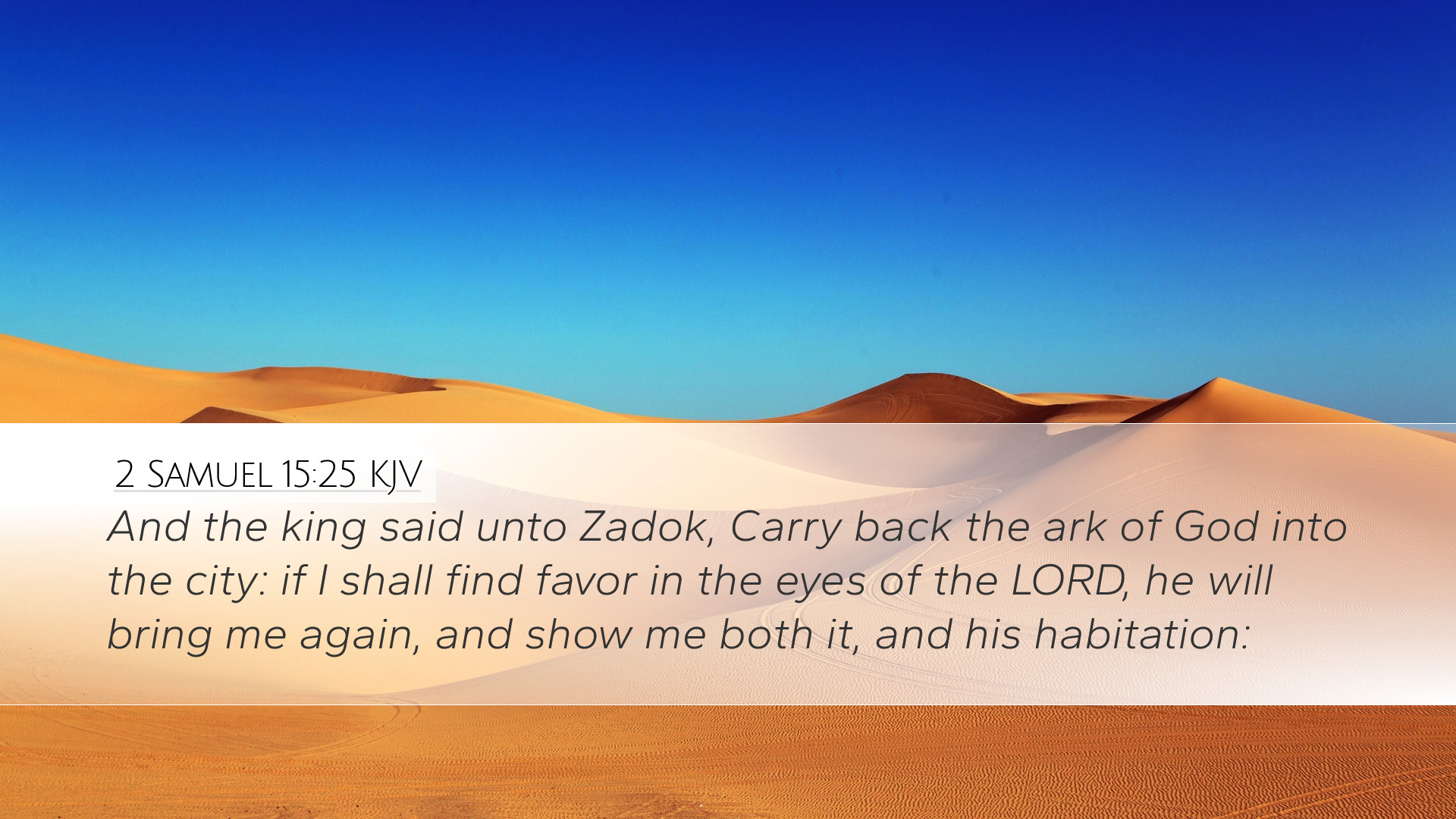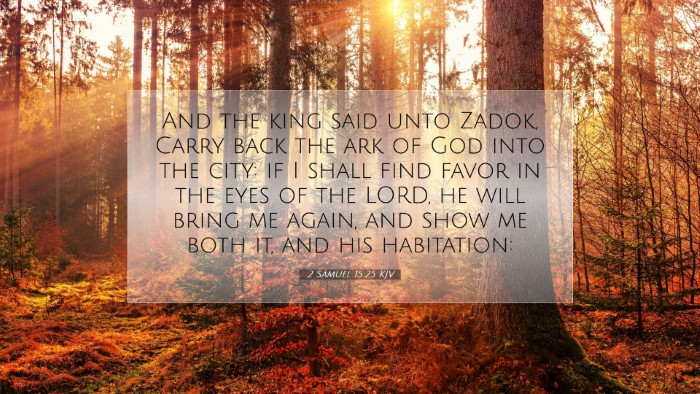Commentary on 2 Samuel 15:25
Verse: "And the king said to Zadok, Carry back the ark of God into the city: if I shall find favor in the eyes of the Lord, he will bring me again, and show me both it, and his habitation."
Introduction
This verse occurs during a pivotal moment in the narrative of David's reign, where he faces rebellion led by his son Absalom. The decision to send the Ark of the Covenant back to Jerusalem highlights David's theological perspective, recognizing that divine favor cannot be captured within a physical representation, but is found in the heart of God's servant.
Contextual Overview
At this juncture, David is fleeing Jerusalem to escape the uprising initiated by Absalom. His companions, including Zadok the priest, accompany him, but David makes a deliberate choice to send the Ark back, which reveals his understanding of God’s presence and the significance of the Ark.
Insights from Matthew Henry
Henry emphasizes the gravity of David’s situation, pointing out that he does not lean on the Ark as a talisman of divine protection:
- The Ark’s Return: David's directive to return the Ark to the city signifies his faith that the presence of God is not confined to a physical location. This act displays both his humility and his trust in God's sovereignty.
- Faith Over Ritual: Rather than treating the Ark as a shield against his adversaries, David acknowledges that favor from God comes through righteousness, not ritual.
Insights from Albert Barnes
Barnes takes a different angle by discussing the practical implications of David's instruction:
- Symbolism of the Ark: The Ark was a symbol of the presence of God, but David understands that its physical location does not dictate his relationship with God.
- Implications for Leadership: Barnes points out that true leadership involves making difficult decisions, as David chose to prioritize God's will over personal safety.
Insights from Adam Clarke
Clarke elaborates on the spiritual significance of this verse:
- Divine Favor: Clarke emphasizes that David’s confidence lay in the assurance of God’s return, suggesting that communion with God is paramount, regardless of one’s circumstances.
- Collective Hope: The return of the Ark to the city reflects a collective understanding among the people of Israel, that their hope lies in God rather than in earthly powers.
Theological Reflection
This moment in 2 Samuel 15:25 calls both leaders and believers alike to reflect on the nature of God’s presence. The removal of the Ark serves as a poignant reminder that God's favor is conferred upon those who seek Him earnestly, rather than those who merely seek the artifacts associated with His worship.
Application for Pastors and Theologians
The lessons derived from this verse transcend historical context and speak to contemporary issues in ministry:
- Prioritize God’s Will: Leaders must redefine success not by numbers or victories, but by their alignment with God's purpose.
- Trust in God's Plan: In times of uncertainty, a leader must communicate trust in God’s ultimate plan, portraying reliance rather than despair.
Conclusion
2 Samuel 15:25 is a rich verse that invites deep reflection on the nature of faith, leadership, and divine favor. As David navigates the challenges posed by his son's rebellion, his actions embody a profound understanding of the connection between God's presence and human response. For modern readers, both scholars and practitioners, this moment serves as an invitation to recalibrate our understanding of spiritual warfare and to seek God’s favor through humility, obedience, and faith.


